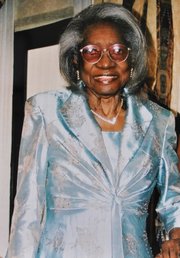Most of the things that were regular in my life changed as soon as my father transitioned. The life I'd stubbornly grown to accept in New York City ended rapidly, and I was thrown into a single-parent situation that had never been of interest to me. All the bad things I'd ever said to my sister about being Daddy's favorite began to haunt me.
But more clearly and most importantly, my mother became a woman I didn't know before. She could no longer be the nurturing, attentive mother she once was. Suddenly, she had to go back to school and get a job. In doing so, I lost my mother when I lost my father. I felt alone, and I rebelled against the world, against my mother.
As a fatherless daughter, I began to act out in school—almost immediately. I was a bully, floating along the lines of gang activity. I was fighting in school, cursing out and threatening teachers. I was an embarrassment to myself and to my sister, who was there with me the first year. I took my mother's need to provide for us as neglect.
Admittedly, up to this point, I'd been a bit spoiled. My deplorable behavior was an attempt to get attention from Mama (and my siblings).
Each time my mother had to return to school with me after I'd been suspended seemed to tear a hole in her. I could tell she was lost. She had no idea what to do with me. I was an enigma to this woman who had given birth to and raised six kids before me. I was the one who challenged her. Her baby girl was tugging at her heartstrings, even as she had to deal with losing the man she loved and learn to pick up the pieces of her life.
Mama had reached the point of no return by the third time I'd been suspended for fighting. There was a mix of emotion in her eyes—hurt, disappointment, anger, frustration. We were both treading an unfamiliar territory. "I don't understand what's going on with you, Funmi. I don't know what to do with you. You know that you wouldn't be acting this way if your daddy was still alive," she told me.
Tears filled her eyes, and my head dropped in shame. "So, if you can't follow the rules of this house and act like the child that your father and I raised you to be, you can leave."
From that day forward, she had my respect and honor. Funny that it took this for me to get there, but it did. I never underestimated my mother's power and strength again. I knew what it must have taken for her to say that to me. I knew she loved me, and I felt that she was deeply hurt. But she was not going to lose control of her house—to a teenager. She was not going to watch me lose myself to the streets. At some point, parents have to recognize that they've given their children all the tools, and it's then up to the child. That time for me came that day. In a way, I became a grown woman sitting on the couch in my mother's living room.
Our relationship was strained a bit after that. I continued to make bad decisions, but she let me. When I fell down, she picked me up and let me fall down again as many times as I needed to in order to become the woman she raised me to be. The best thing my mother taught me was that she wasn't perfect. She never tried to be, and she proved to me that she didn't have to be. She loved her children enough to trust the foundation she built for us. When it was time to test it, she gave us room to do so. I'm not sure if my other siblings used as much of that rope as I did. But I am still thankful for it.
I'm not really convinced that she actually would have put me out of her house at 15 years old. I will never know. Nevertheless, she ignited a change in me that planted me back on the foundation she and my father created for me. I am ever thankful for that very last fight because it gave my mother the final straw it took to save my life. That's what mothers do, even if it hurts.



Comments
Use the comment form below to begin a discussion about this content.
comments powered by Disqus